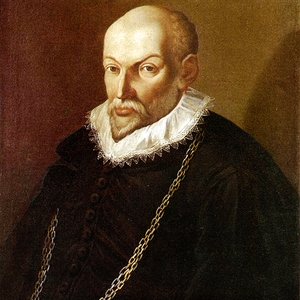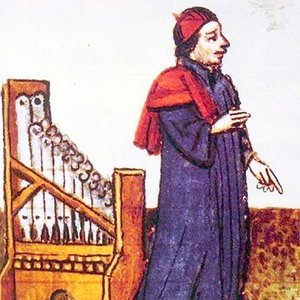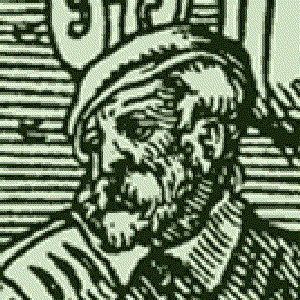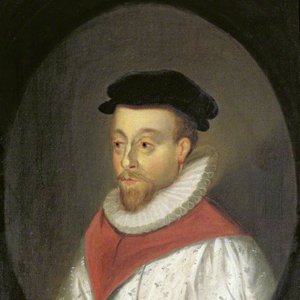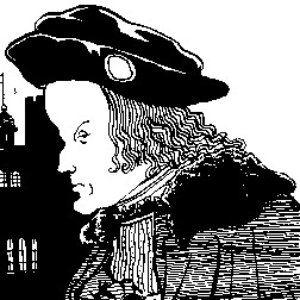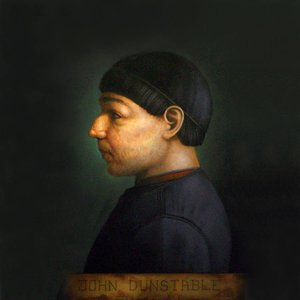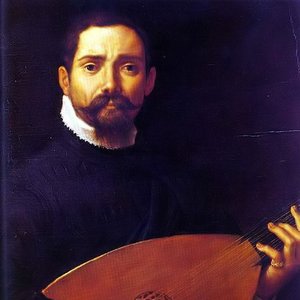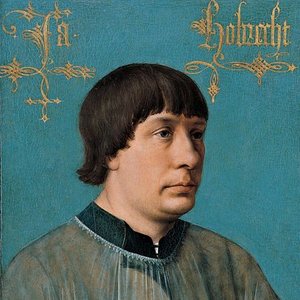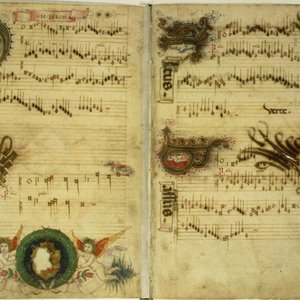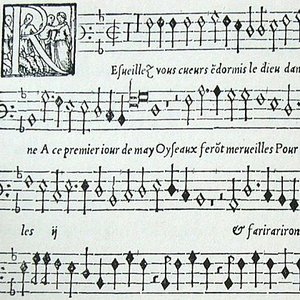Biography
-
Born
1410
-
Born In
Saint-Ghislain, Hainaut, Wallonie, Belgium
-
Died
6 February 1497 (aged 87)
Johannes Ockeghem (c. 1410, Saint-Ghislain, Belgium – 6 February 1497, Tours, France) was the leading composer of the second generation of the Franco-Flemish School. Ockeghem is often considered the most important composer between Guillaume Dufay and Josquin Desprez.
Recent research has shown that Ockeghem was born in the town of Saint-Ghislain; many older biographies state that he was either born in the town of his name or in the neighboring town of Dendermonde in East Flanders (now part of modern Belgium), part of the Duchy of Burgundy.
Details of his early life are lacking: even his birth date is unknown, and is usually inferred from a comment by the poet Crétin, at the time of his death, that "it was a great shame that a composer of his talents should die before 100 years old". Like many composers in this period, he started his musical career as chorister, and the first record of his musical activity comes from the cathedral of Notre Dame in Antwerp, where he was employed in 1443 and 1444.
Between 1446 and 1448 he served Charles, Duke of Bourbon, in Moulins (France). Around 1452 he moved to Paris where he served as maestro di cappella to the French court, as well as becoming treasurer of the St. Martin cathedral in Tours. In addition to serving at the French court — both for Charles VII and Louis XI — he held posts at Notre Dame Cathedral and St. Benoît.
He is known to have traveled to Spain in 1470, as part of an attempt to arrange a marriage between Isabella of Castile and Charles, Duke of Guyenne (the brother of king Louis XI). After the death of Louis XI (1483), not much is known for certain about Ockeghem's whereabouts, though it is known that he went to Bruges and Tours, and he probably died in the latter town since he left a will there.
Ockeghem probably studied with Gilles Binchois, and at the very least was closely associated with him at the Burgundian court. Since Antoine Busnois wrote a motet in honor of Ockeghem sometime before 1467, it is probable that those two were acquainted as well; and writers of the time often link Dufay, Busnois and Ockeghem.
Although Ockeghem's musical style differs considerably from that of the older generation, it is probable that he acquired his basic technique from them, and as such can be seen as a direct link from the Burgundian style to the next generation of Netherlanders, such as Jacob Obrecht and Josquin.
Very few of his works have survived: some 14 masses and a Requiem mass, 9 motets and a song motet (a deploration on the death of Binchois), and 21 chansons. Thirteen of Ockeghem's masses are preserved in a late Fifteenth century Flemish manuscript known as the Chigi codex.
His Missa pro Defunctis is the earliest surviving example of a polyphonic requiem mass. In addition to his small surviving output, some of the works attributed to him have been questioned: for example the amazing technical tour-de-force for 36 voices, Deo gratias is very likely by someone else, but this remains in dispute; and several of his chansons and motets are anonymous in the sources, but attributed to him on stylistic grounds.
A strong influence on Josquin Desprez, Ockeghem was famous throughout Europe for his expressive music and his technical mastery. His technical prowess is demonstrated most clearly in the astonishing Missa Prolationum, which consists entirely of mensuration canons, and the Missa cuiusvis, to be performed in different modes, but even these technique-oriented masterpieces demonstrate his insightful use of vocal ranges and uniquely expressive tonal language.
Being a renowned bass singer himself, certainly his use of complex bass lines sets him apart from the other composers in the Netherlandish Schools.
To commemorate his death, Josquin Desprez composed the motet La déploration de la mort de Johannes Ockeghem, a setting of the poem Nimphes des bois by Jean Molinet.
Artist descriptions on Last.fm are editable by everyone. Feel free to contribute!
All user-contributed text on this page is available under the Creative Commons Attribution-ShareAlike License; additional terms may apply.

